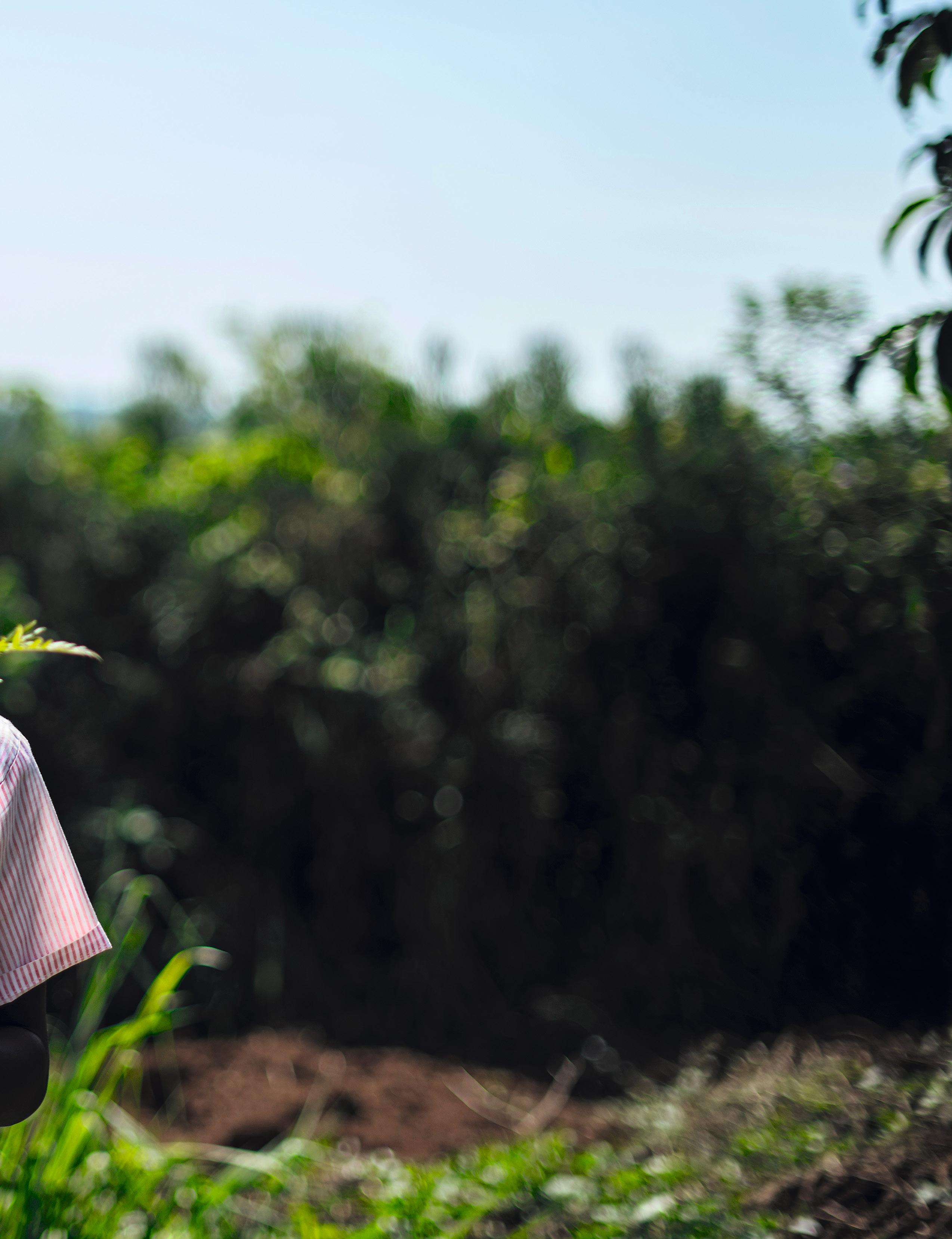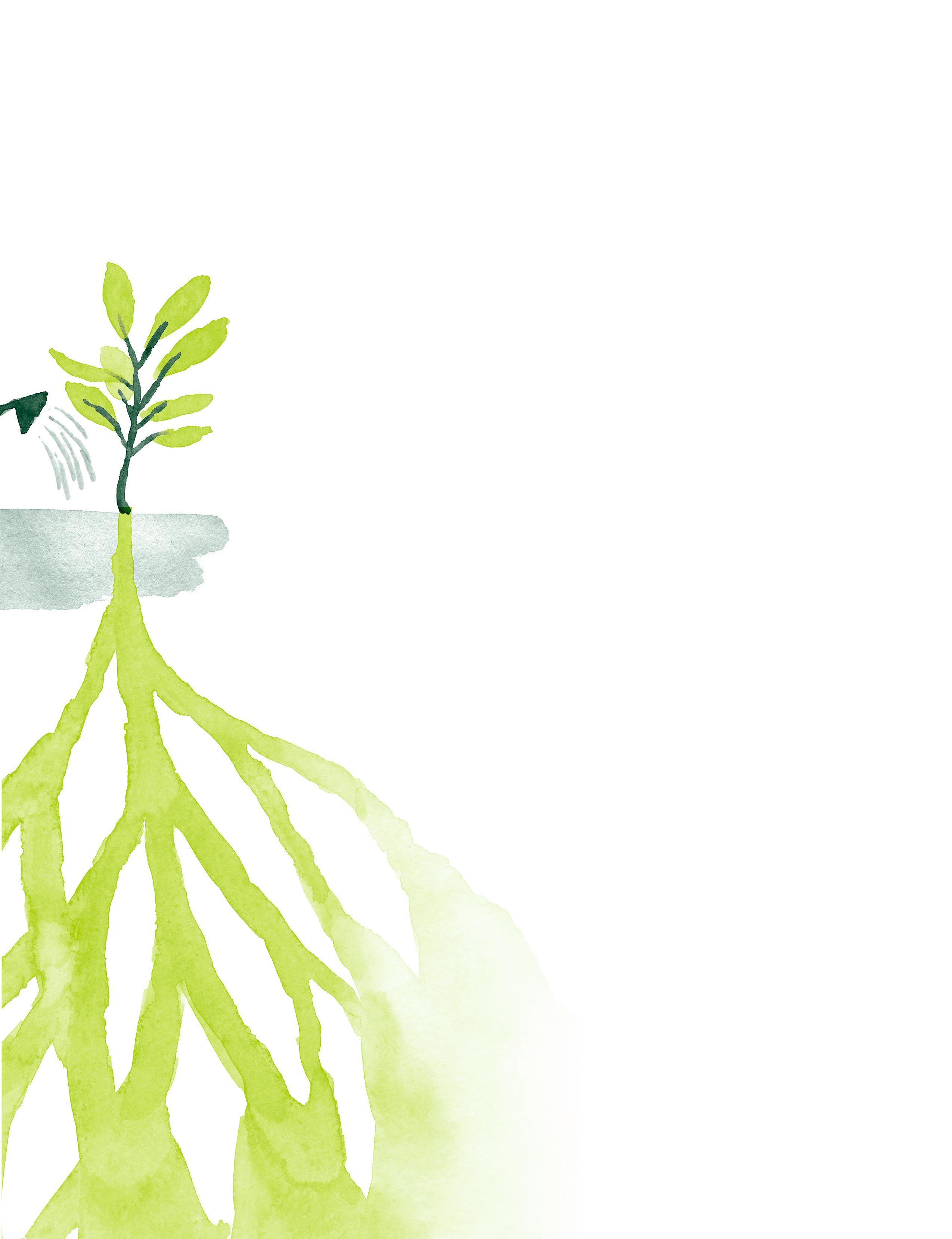
10 minute read
Column: Sustainable development
Advertisement
DURING THE 12 YEARS I worked as an entrepreneur in Tanzania I saw major differences in how businesses approached corporate responsibility. In effect, responsible companies competed against those who did not pay taxes or care about accountability and sustainability. Irresponsible practices fuelled corruption, and corruption fuelled irresponsibility.
Examples of irresponsibility are not hard to find because they are constantly featured in the news: It is cheaper to damage the soil by managing waste irresponsibly than to invest in proper waste treatment. It is less costly to cut down natural forests than to plant trees and look after the plantations. It is more profitable to fish with dynamite on the shores of Africa and transport the catch illegally to Asian markets than to fish responsibly, provide fish for the domestic market and pay local taxes.
We must put an end to this vicious circle, which is why we need to help responsible companies. They must be given a competitive advantage to help turn corporate culture into a responsible one and to create decent jobs.
The work of Finn Church Aid’s FCA Investments (FCAI) is all about providing this competitive advantage. We offer expertise and funding to companies operating responsibly in developing countries. As the CEO, my firm belief is that accountability and sustainability will overcome irresponsibility. It will happen when responsible companies beat their competitors in size, efficiency and quality.
In sub-Saharan Africa, the working-age population will increase by 712 million by 2050, creating an urgent and growing need for responsible employment. By way of comparison, there are currently 223 million jobs in the EU and the UK. Without access to significant new income opportunities, African nations will spiral into despair, which will cause more conflict, unsustainable use of resources and cross-border movement.
FCAI is funding accountable and sustainable fishing, organic farming, a chicken farm, a software package for small-scale financing operations, a leather factory and a dairy producing ice cream. The business world in developing countries is an endless treasure trove offering a wealth of investment opportunities.
But investors prefer investments with the highest return relative to risks involved. As investing in companies located in developing countries exposes investors to risks, the production of goods and services shifts towards rich countries for financial reasons. This creates a vicious circle in which the weakest countries are being left behind.
Through FCAI, money is spent on investments that generate the highest return relative to risk. But our idea of return on investment is different from the mainstream. It is not just about money; it is about achievements that bring us closer to the UN Sustainable Development Goals. And we think it is this kind of sustainable development that generates the highest returns. STOP
Jukka-Pekka Kärkkäinen CEO, FCA Investments PHOTO: TATU BLOMQVIST
RIGHT TO PEACE
PEACE IS A PREREQUISITE for achieving human rights and sustainable development. When peace prevails, children can go to school and adults can focus on building secure livelihoods and stable societies.
Finn Church Aid builds peace in some of the world’s most fragile countries such as South Sudan, the Central African Republic and Somalia, and in countries suffering from protracted conflicts.
Recently, the nature of conflicts has become increasingly complex, which in turn complicates peacebuilding. Global crises such as the Covid-19 pandemic only amplify the impact of conflicts. The repercussions of the pandemic include growing hate speech against minorities, narrower space for civil society, and further limitations on the rights of women and girls. Other current drivers of social instability include climate change, which contributes to forced migration and competition for scarce natural resources.
Peace means more than the absence of conflict; sustainable peace can only be achieved if the entire community agrees to implement structural changes that support peaceful co-existence between different groups. Civil society actors in conflict-ridden countries are instrumental to creating inclusive and equitable peace, but they need long-term support.
Our peace work centres around women, youth, and refugees as well Crises like the Covid-19 as religious and traditional actors. pandemic amplify the impact These groups are often excluded in of conflicts, such as Syria’s war that has been going on for ten official peace processes, which is why years. Amidst these conflicts we want to make sure their voices are and crises, schools offer a safe space for children. heard in decision-making. STOP PHOTO: ABU TALIB AL-BUHAYA
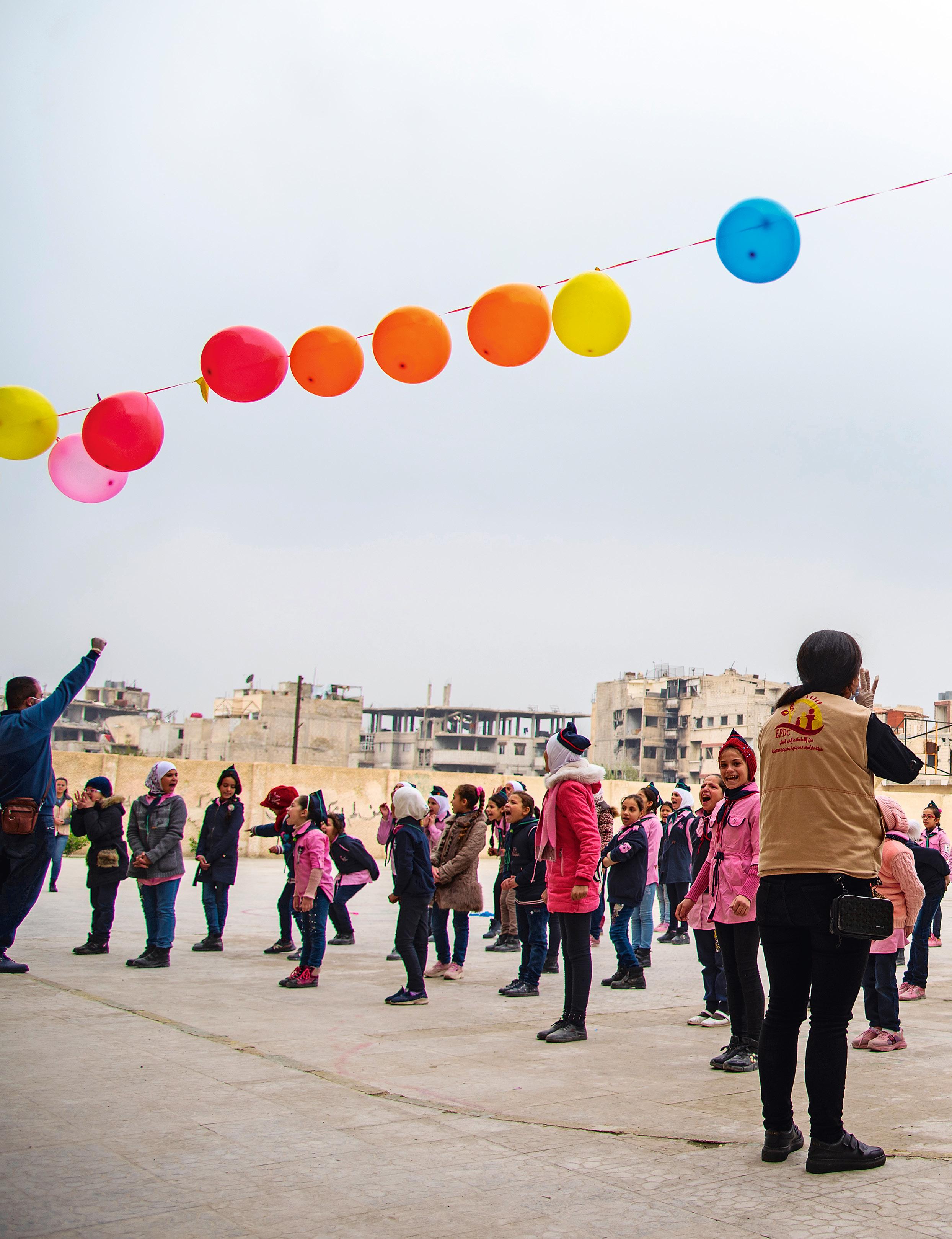
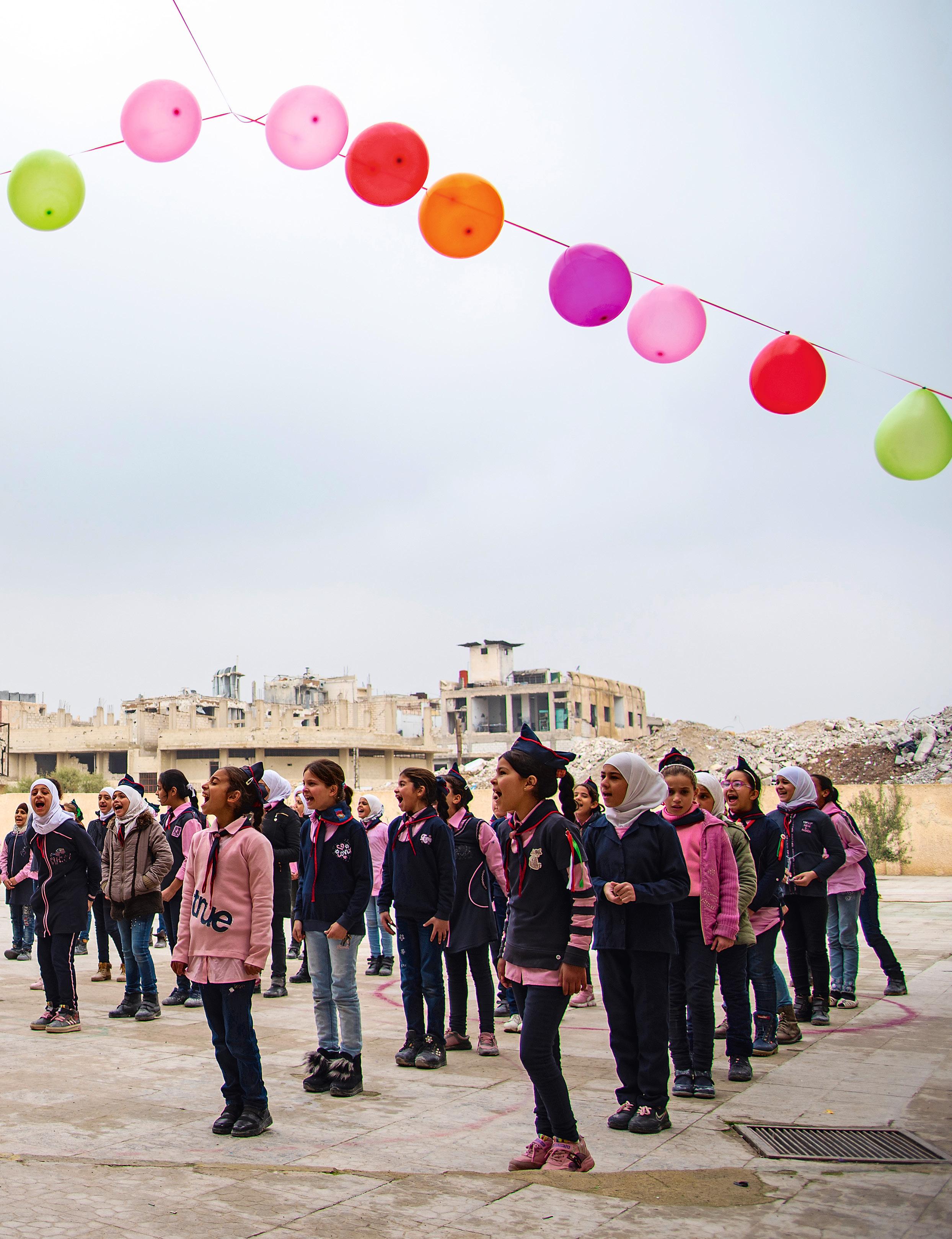
The success of our volunteers
Finn Church Aid’s volunteers work with equality, food waste, education, advocacy and human rights.
WOMEN’S BANK. Despite the pandemic, the Women’s Bank continued to work towards women’s economic independence, rights and equality in 2020. The crisis affected volunteering in general, fundraising in Finland and the implementation of projects in Women’s Bank programme countries across Africa, Asia and the Middle East. At the same time, the pandemic also raised global awareness of the key issues that the Women’s Bank works with, such as the protection of women’s and girls’ rights.
During an extraordinary year, our volunteers managed to accomplish remarkable feats. While the pandemic restricted traditional voluntary activities based on physical interaction, volunteers quickly established an online presence and developed new ways of raising funds and working together. In 2020, Women’s Bank collected EUR 1,559,000 in donations, largely in private and monthly donations. At the end of the year, Women’s Bank had 3,466 monthly donors, 1,665 shareholders and more than 3,000 volunteers in 42 local groups. With their support, 13 projects were carried out in six programme countries. All in all, around 21,100 women in six countries were involved in Women’s Bank activities.
Women’s Bank Walk events raised EUR 63,200, and in the summer of 2020, the Women’s Bank Open golf tournament broke previous records by generating EUR 42,000.
WEFOOD, Finland’s first supermarket selling surplus food, managed to reduce food waste by 205,000 kilograms by the end of 2020. Established in 2018, the store is located at Redi Shopping Centre in Helsinki’s Kalasatama area.
Covid-19 closed WeFood from mid-March until the end of May, and the store was forced to reduce its opening hours during the summer. However, the lockdown and remote working also had positive effects: WeFood attracted new and enthusiastic volunteers looking for meaningful things to do during the pandemic. In all, 110 volunteers donated their time to work in the store, organise logistics and be active on social media.
In its second year of operation, WeFood had trainees from four educational institutions and the number of suppliers increased to 40. In 2020, the first WeFood brand product – surplus coffee beans – was launched in collaboration with Kaffa Roastery.
TEACHERS WITHOUT BORDERS is a voluntary network of Finnish teaching and education professionals providing education experts for Finn Church Aid projects where support is needed to improve the quality of teaching. Teachers Without Borders have provided short-term volunteering opportunities since 2014.
In early 2020, eight volunteers travelled to Uganda, Myanmar and Cambodia; however, voluntary work in the countries was soon suspended due to Covid-19, and the network had to come up with new forms of working.
In the end, the network had 17 volunteers working remotely in 2020, supporting the professional development of their colleagues in Bangladesh, Cambodia, Kenya, the Palestinian territories and Myanmar together with local actors. They also created training materials to meet early childhood education needs and support distance learning and offered online mentoring and coaching to teachers and career counsellors.
In addition to the volunteers supporting the programme countries, around 30 volunteers participated in activities taking place in Finland.
CHANGEMAKER. Finn Church Aid’s youth network, Changemaker Finland, promotes global justice by educating young people on development issues and by organising advocacy activities.
Changemaker’s ABC Trainings in Advocacy were popular in 2020, with 161 young participants attending 23 courses. In all, Changemaker organised 132 courses and events in 13 locations and online in 2020.
Changemaker campaigned for development cooperation funding with Kehyä, kiitos! campaign, inviting young people to describe why development cooperation is important to them. In 2020, the network also contributed to the Irti turpeesta campaign, raising awareness of peat-free energy sources, and to Finnwatch’s opinion supporting a Finnish Corporate Responsibility Act.
Changemaker’s advocacy activities, events and trainings attracted 128 new members, increasing the membership to 1,030 at year-end. Changemaker Finland cooperated internationally with the Changemaker networks in other countries and with ACT Alliance’s Youth Participation Community of Practice.
EAPPI. The Ecumenical Accompaniment Programme in Palestine and Israel (EAPPI) is an international programme that sends volunteer human rights monitors to the occupied Palestinian territories, the West Bank and East Jerusalem.
During their three-month volunteering service, monitors support local communities and civilians by providing a protective presence and reporting on human rights violations in the territories.
When the Covid-19 pandemic forced volunteers to leave the territories, EAPPI largely turned its focus on advocacy in Finland and abroad, working in cooperation with partners such as the World Council of Churches. EAPPI encourages civil society organisations, political decision-makers and religious leaders to take action for global justice. In its communications and advocacy, EAPPI often speaks out against immediate human rights violations. In 2020, its advocacy focused on Israel’s plans to annex parts of the occupied Palestinian territories. STOP
1. Women’s Bank Walks helping women into new professions kept going in 2020. This lively scene took place in
2019. PHOTO: PETTERI JÄRVINEN
2. Career counsellors Zin Mar Htwe and Thin Thin Myaing in Myanmar with volunteer Hanna Päivärinta from Teachers Without Borders, photographed in
March 2020. PHOTO: KYAW ZIN KO
3. Surplus store WeFood’s volunteers Marianne and Mikael are busy at work.
PHOTO: TATU BLOMQVIST 4. In 2020, our Changemaker youth network organised 132 training courses and events. During their October weekend meetup, Changemakers held
a Timeout Dialogue. PHOTO: MATIAS UUSISILTA
5. EAPPI sends voluntary human rights monitors to the Palestinian territories, East Jerusalem and the West Bank. In 2020, the volunteering placements were suspended, but the programme continued its advocacy. The photo was taken in Hebron in January 2020.
PHOTO: NORA LUOMA
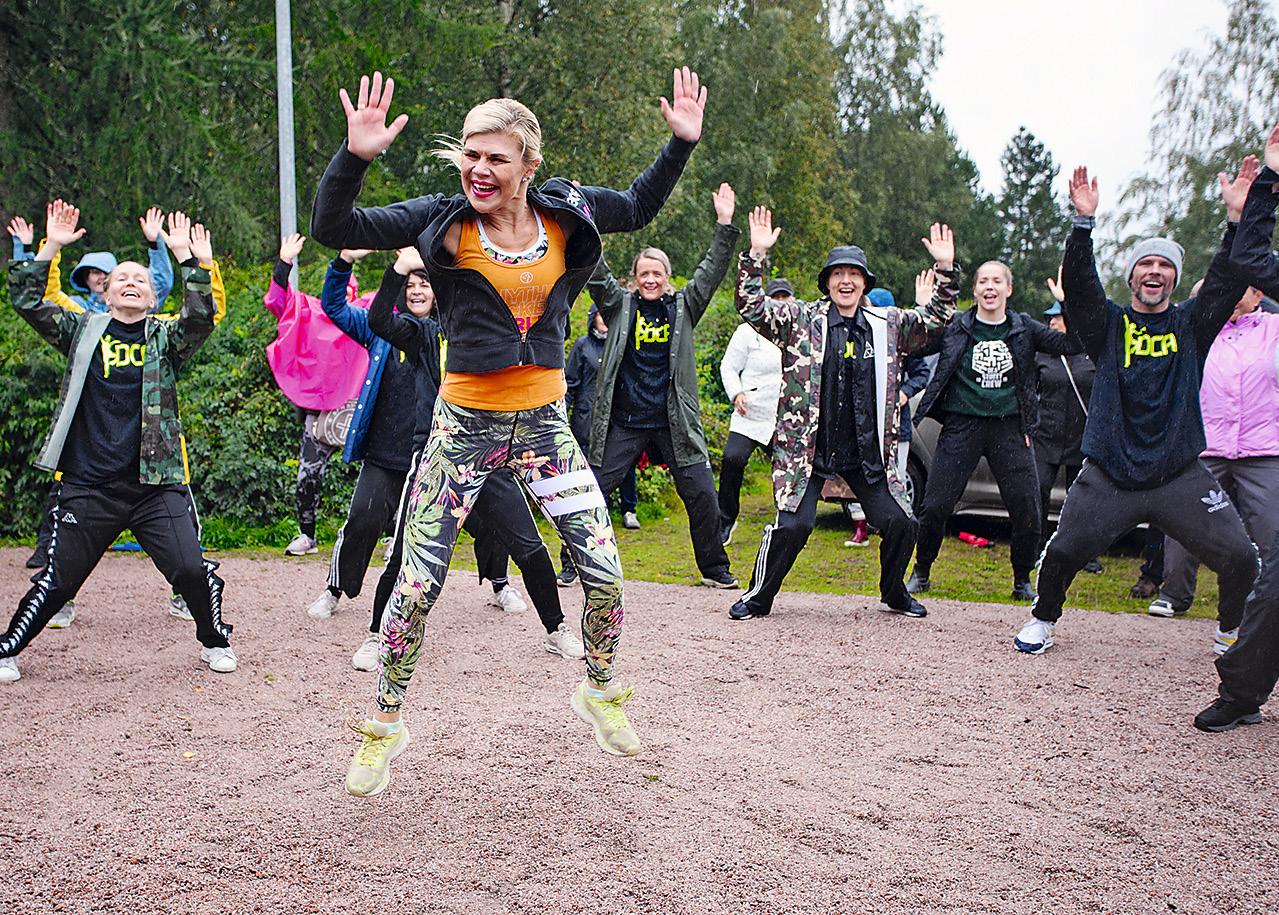
1. 2.
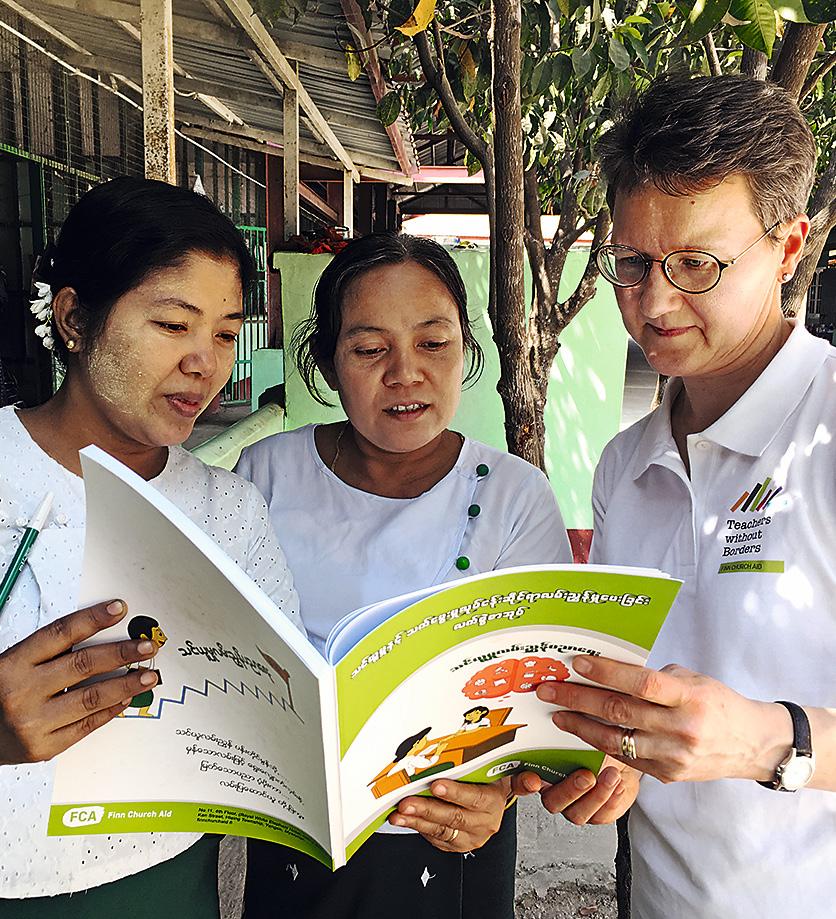
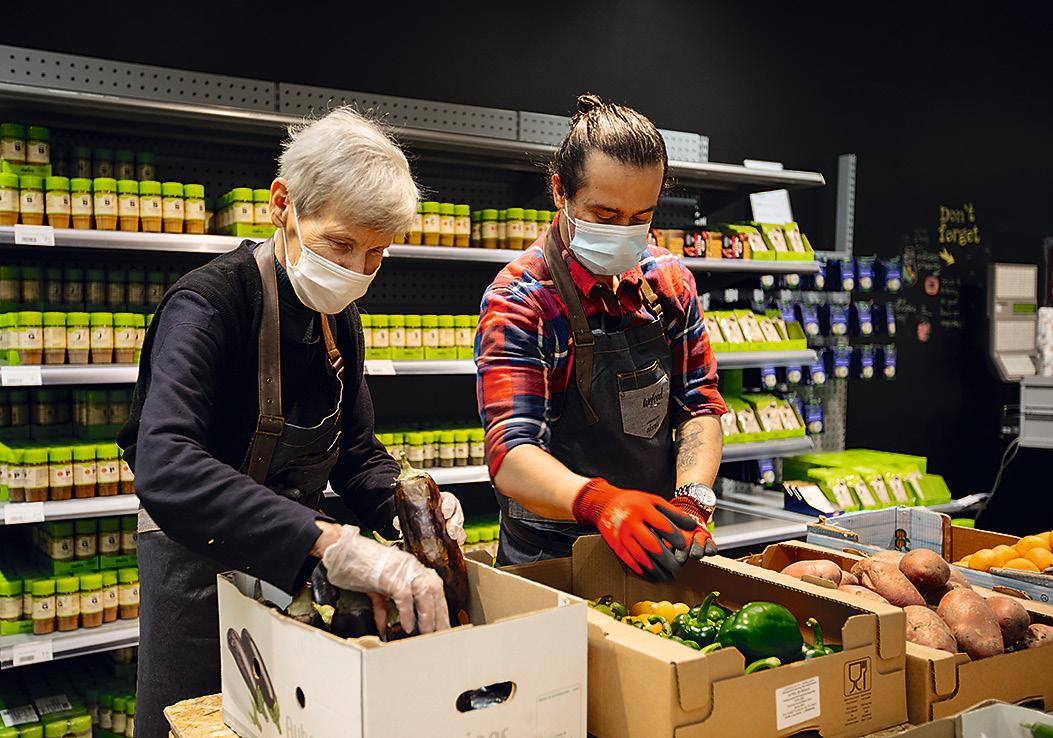
3.
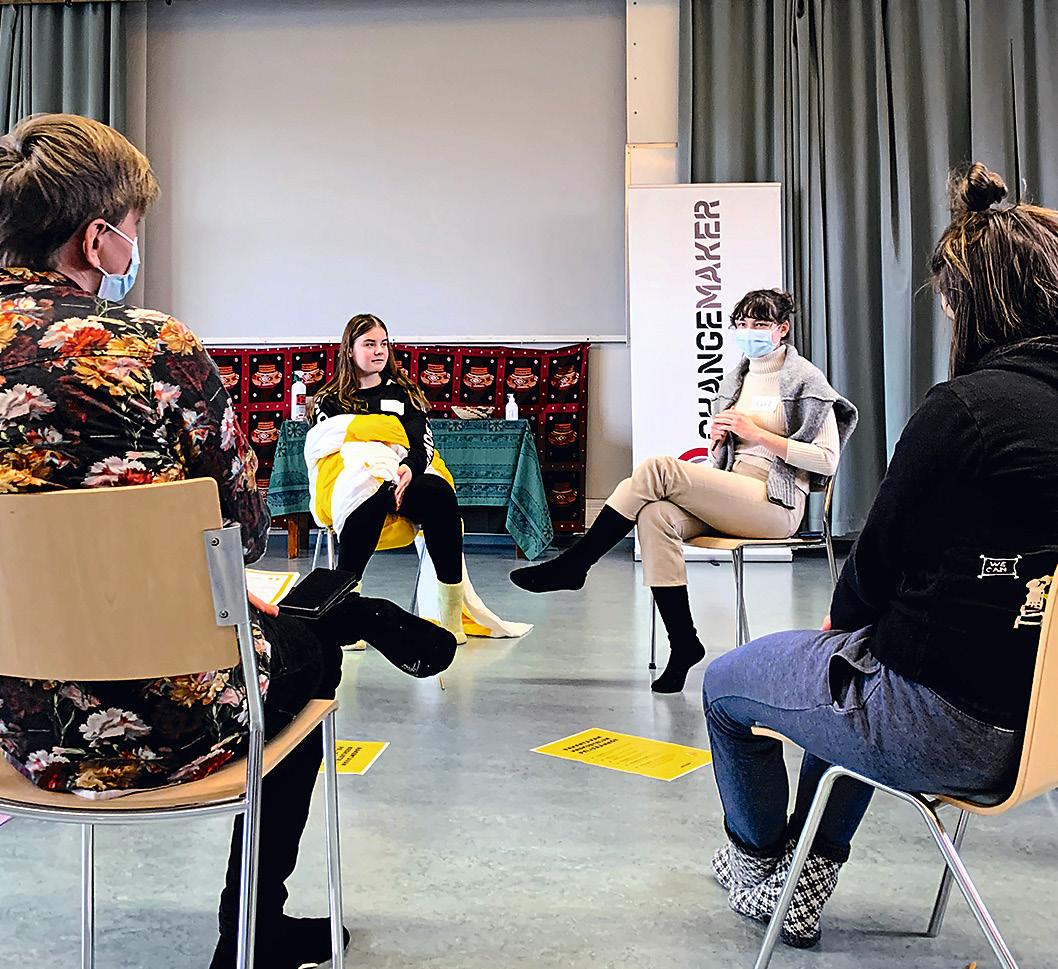
4. 5.
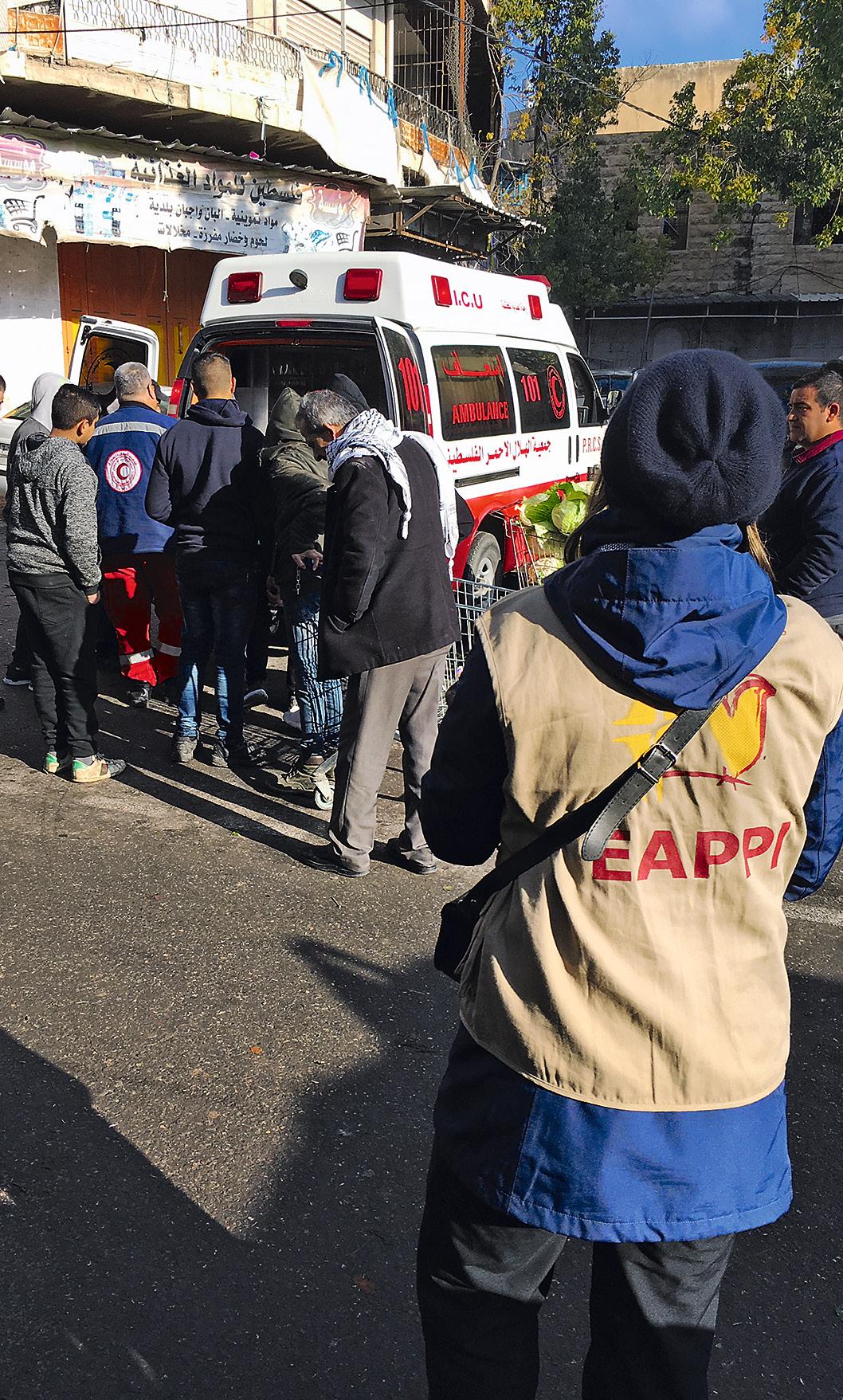
LOCAL AND GLOBAL PARTNERSHIPS CREATE THE FOUNDATION FOR SUSTAINABLE IMPACT
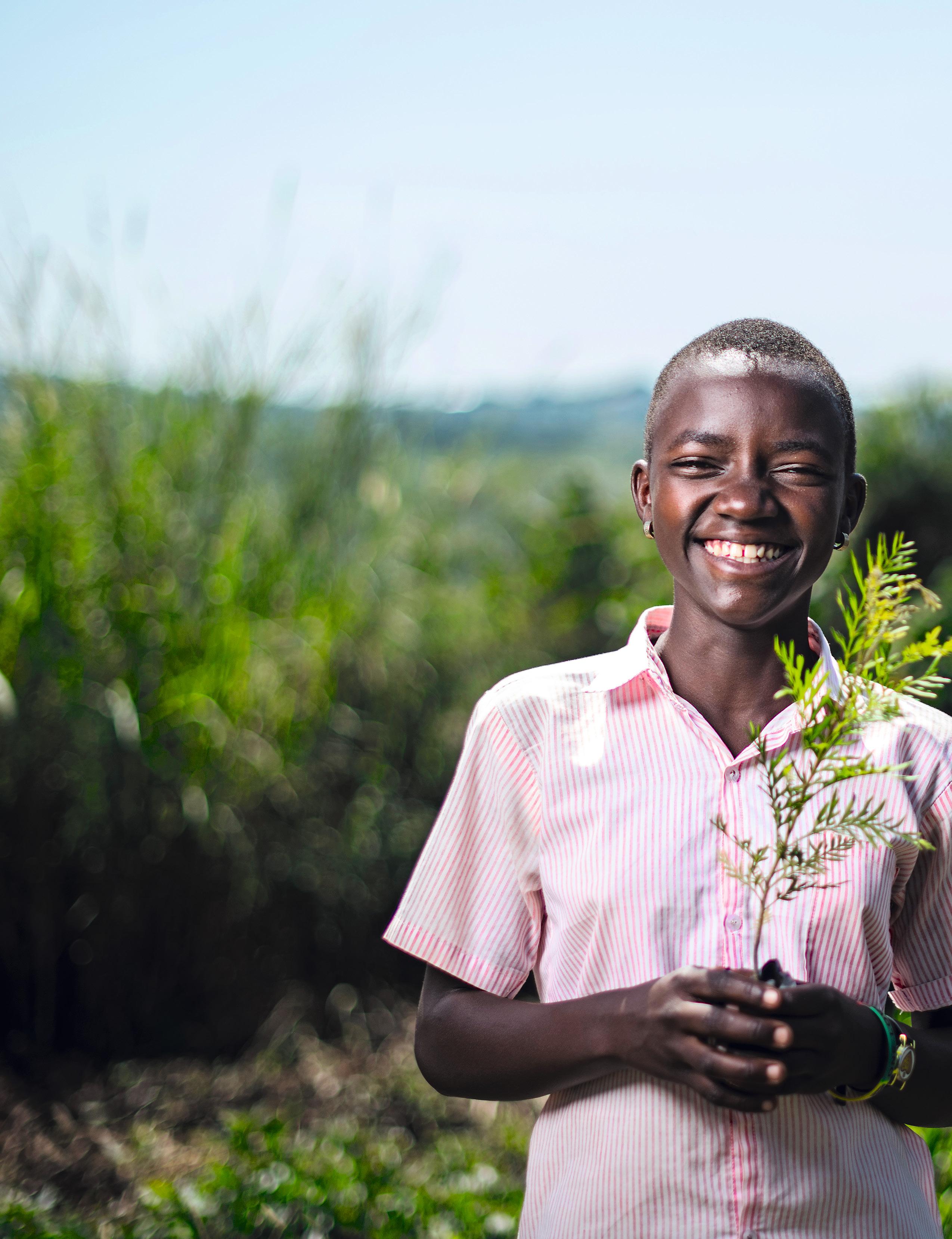
THE BREADTH AND DEPTH of FCA’s collaboration with humanitarian and development actors increased in 2020, reflecting the centrality of partnerships in securing sustainable impact and effective and efficient use of resources. To address the new challenges of the Covid-19 pandemic, FCA worked to reinforce its relations not only with traditional governmental, IGO and INGO partners, but especially with local partners, as well as the private sector and academia.
FCA’s partnership approach remained multi-pronged and operational at global, regional, national and local levels. The Ministry for Foreign Affairs in Finland continued to be a critical strategic partner and utilising our UN ECOSOC consultative status, we were able to build close working relationship and partnerships with a number of UN Agencies and UN bodies. Despite the challenges (there were also opportunities) of meeting digitally, we were able to strengthen our partner engagement through active participation in global fora, networks and working groups across our three main thematic priorities, as well as for cross-cutting areas, such as gender, youth and people with disabilities.
As the international aid organisation of the Evangelical Lutheran Church of Finland (ELCF) with an independent foundation status, FCA continued to cooperate closely with ELCF’s parishes to raise awareness of global justice, promote fundraising campaigns and provide opportunities for voluntary Naomi Shangwe, 15, is a member of her school’s work. environment club in Kyaka We also continued close collabrefugee settlement in Uganda. The learners are taught how to oration with our long-time global plant and look after seedlings, ecumenical partners: ACT Alliance, and schools also grow mango and orange trees. the Lutheran World Federation and PHOTO: HUGH RUTHERFORD the World Council of Churches. STOP
